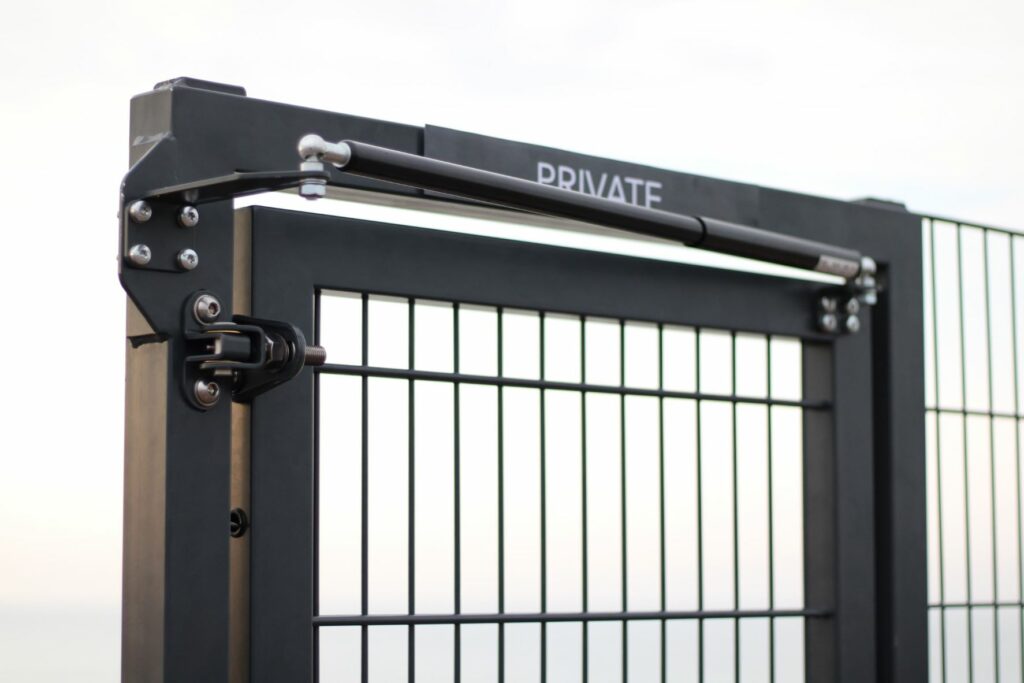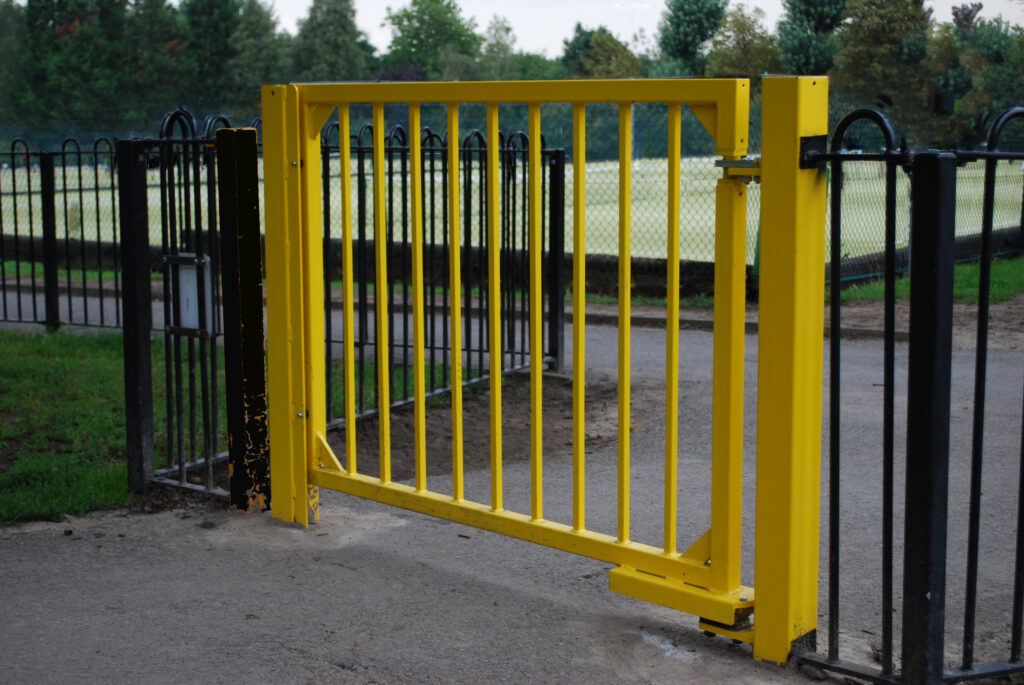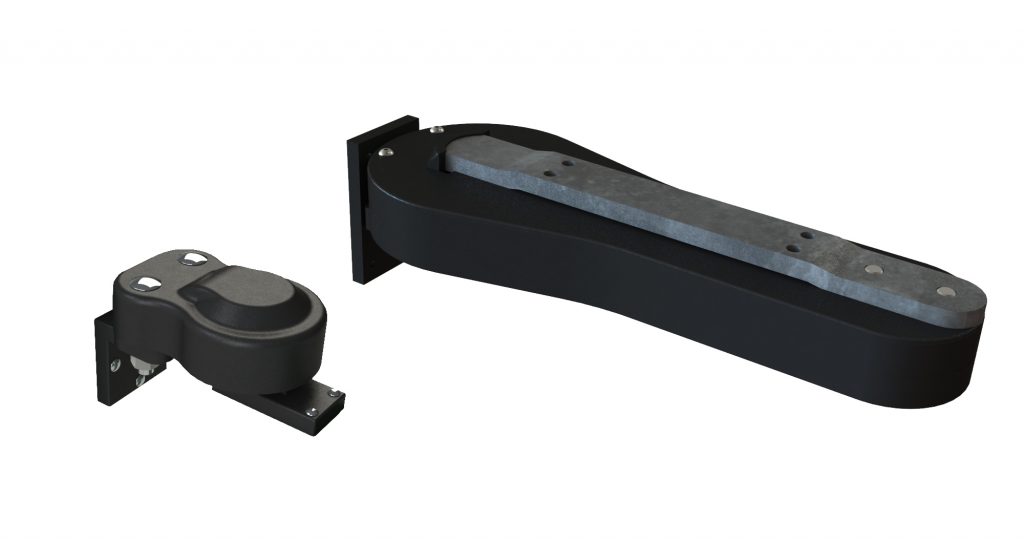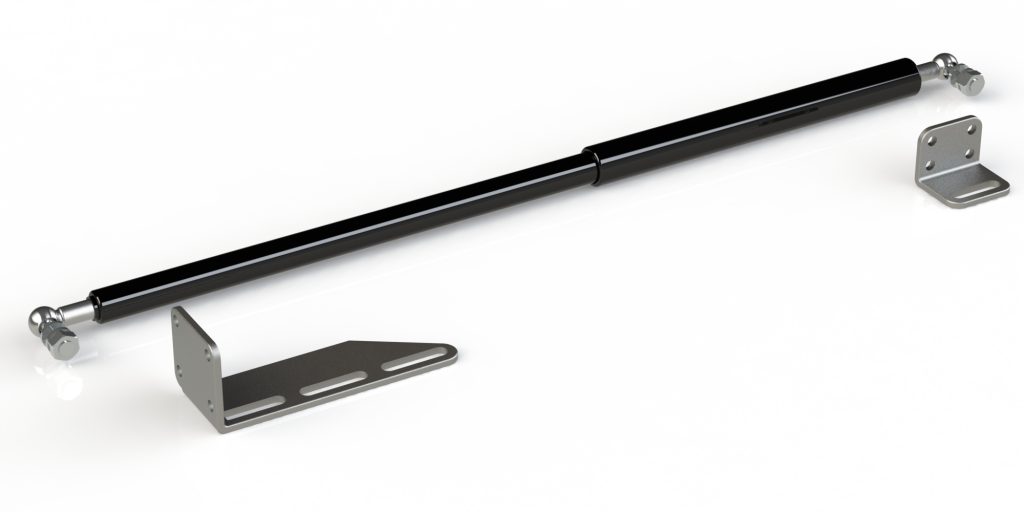Self-closing gates: How to find the best gate closer

Your customer has decided they want their new gate to self-close after use. No problem, as you know that a gate closer can easily do this. But do you know what kind of gate closing mechanism to use for safe and reliable closing?
Like most gate hardware, there are many options on the market when it comes to gate closers. You can go for rising hinges, spring hinges, gas closers, hydraulic closers, the list goes on.
The first step to finding your gate closer is to determine if you need a controlled close or just a device that closes your gate.
Don’t be fooled, there is a big difference!
We always recommend using a controlled gate closer, which is why our two gate closers both fall into this category.
For spring hinges, rising hinges and spring gate closers, the actual close is rarely controlled and the gate will just snap shut, which can easily lead to injury especially if kids use the gate.
This brings us back to the controlled closers of which we have two different types: the APS and the GSB. They are both adjustable, but work in slightly different ways as one uses hydraulics and the other uses compressed gas as the closing mechanism.
To compare the two, we have listed the main characteristics of each gate closer to provide a quick overview for you to decide the best gate closer for your self-closing gate.
Advantages of the Gas Strut Closer – GSB / GSBW

- Controlled close
- Force: Adjustable closing force.
- Fitting: Easy to install on new or existing gates with screw-fixed brackets (GSBW).
- Design: Slim design for an unobtrusive look on your gate.
- Closing mechanism: No power needed; compressed gas does all the closing.
- Material: Stainless steel rod with powder coated steel sleeve tube.
Advantages of the Hydraulic Closer Hinge – APS
- Controlled close.
- Force: Adjustable closing and latching speed.
- Strength: Can close gates up to 150 kgs.
- Fitting: Welded onto the bottom of the gate, making it an integrated part of the gate.
- Closing mechanism: No power needed; hydraulics operate the dampened close.
- Safety: When installed, the gate will have a non-reducing gap thanks to the closer being a load bearing hinge.
So, which gate closing mechanism is better?
We couldn’t possibly choose between the two, because it really comes down to the specific gate you are installing it on, the usage of that gate, the size, weight, and of course the location of the gate.
Some locations have special requirements for gates, like play areas, schools, and public parks, where the choice of gate closer can help fulfil these.
If you have a project with specific safety recommendations or a customer with certain requests, talk to us and let us help you close their gates with a gate closing mechanism.
Not wanting a weld-on gate closer?
Both the GSB and the APS comes in a screw-fixed version, which bolts onto the gate for a quicker installation. Adjustable and reliably controlled gate closing mechanisms that will get the job done every time!



